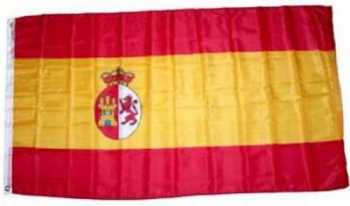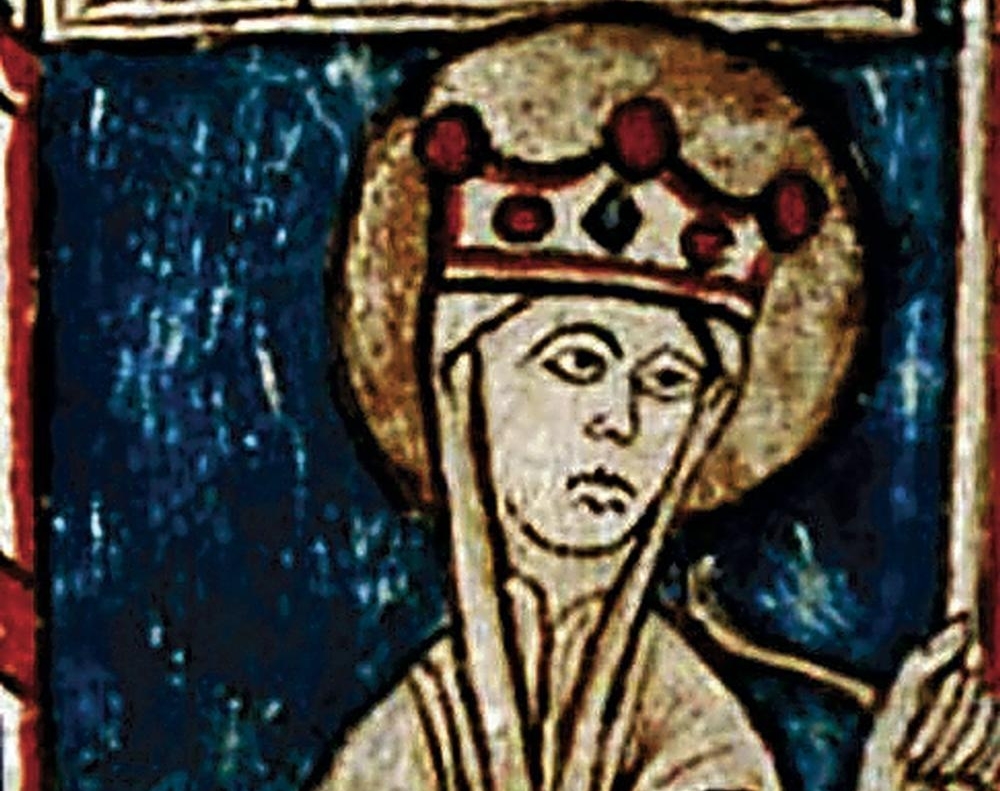October 13
Saint’s Day for Eduardo, Celedonia, Marcial, Teófilo, Venancio and Carpo.
409 - Vandals and Alans cross the Pyrenees and appear in Hispania.
824 - In Brañosera, Count Nunio Nunez understands the need to organize restocking, protected by the presura, is unstable and ineffective to ensure progress. So he called freemen his subjects, giving them rights through the Charter populates.
1292 - Christian hosts of Sancho IV snatch Tarifa (Cádiz) from the Sultan of Morocco.
1397 - Zaragoza (Aragon), King Martin of Aragon Human (Martí the Humane) swears the privileges established by his father Pedro IV, and April 13, 1399 is crowned in that city.

1909 - Francisco Ferrer i Guardia was shot in Barcelona instigador as the course of the riots of the Tragic Week
1934 - in Asturias, the Asturian rebel forces surrender to the government of the Republic.
2009 - Spanish authorities arrest five members of the banned Basque political group Batasuna.
Births

Eleanor was born in the castle at Domfront, Normandy c. 1161, as the second daughter of King Henry II of England and his wife Eleanor, Duchess of Aquitaine, and was baptised by Henry of Marcy. Her half-siblings were Countess Marie of Champagne and Countess Alix of Blois. Her full siblings were Henry the Young King, Duchess Matilda of Saxony, King Richard I, Duke Geoffrey II of Brittany, Queen Joan of Sicily and King John. Eleanor had an older brother, William (17 August 1153 – April 1156), the first son of Henry II, and Eleanor of Aquitaine, who died of a seizure at Wallingford Castle, and was buried in Reading Abbey at the feet of his great-grandfather Henry I.
In 1170 Eleanor married King Alfonso VIII of Castile in Burgos at the age of 12. Her parents' purpose in arranging the marriage was to secure Aquitaine's Pyrenean border, while Alfonso sought an ally in his struggles with Sancho VI of Navarre. In 1177, this led to Henry overseeing arbitration of the border dispute.
Around 1200, Alfonso began to claim that the duchy of Gascony was part of Eleanor's dowry, but there is no documented foundation for that claim. It is highly unlikely that Henry II would have parted with so significant a portion of his domains. At most, Gascony may have been pledged as security for the full payment of his daughter's dowry. Her husband went so far on this claim as to invade Gascony in her name in 1205. In 1206, her brother John granted her safe passage to visit him, perhaps to try opening peace negotiations. In 1208, Alfonso yielded on the claim. Decades later, their great-grandson Alfonso X of Castile would claim the duchy on the grounds that her dowry had never been fully paid.
Of all Eleanor of Aquitaine's daughters, her namesake was the only one who was enabled, by political circumstances, to wield the kind of influence her mother had exercised. In her marriage treaty, and in the first marriage treaty for her daughter Berengaria, Eleanor was given direct control of many lands, towns, and castles throughout the kingdom. She was almost as powerful as Alfonso, who specified in his will in 1204 that she was to rule alongside their son in the event of his death, including taking responsibility for paying his debts and executing his will. It was she who persuaded him to marry their daughter Berengaria to Alfonso IX of León. Troubadours and sages were regularly present in Alfonso VIII's court due to Eleanor's patronage.
Eleanor took a particular interest in supporting religious institutions. In 1179, she took responsibility to support and maintain a shrine to St. Thomas Becket in the cathedral of Toledo. She also created and supported the Abbey of Santa María la Real de Las Huelgas, which served as a refuge and tomb for her family for generations, and its affiliated hospital.
When Alfonso died, Eleanor was reportedly so devastated with grief that she was unable to preside over the burial. Their eldest daughter Berengaria instead performed these honours. Eleanor later became sick and died only twenty-six days after her husband, and was buried at Abbey of Santa María la Real de Las Huelgas. (d. 1214 in Burgos)
1789 - Manuel Eduardo de Gorostiza, playwright, journalist and Mexican Spanish diplomat. He was the son of Pedro Fernández de Gorostiza, governor of the port of Veracruz, and the poet Rosario Cepeda. Gorostiza was in 1824 the first Mexican ambassador to the United Kingdom of the Netherlands (d. 1851)
1842 - In Jerez de la Frontera, Joseph Paul y Angulo, politician and writer. (d. 1892 in Paris)
1883 - José María Albiñana,doctor, writer and politician (d. 1936)
1897 - Eduardo Blanco Fernández, politician (d. 1997)
1925 - Carlos Robles Piquer, politician and diplomat (d. 2018).
1946 - Diego Fernandez Galan, critic and director of Spanish cinema.
1950 - the leading member of the ETA ‘political-military branch’, Eduardo Moreno Bergaretxe, also known as Pertur, was born in San Sebastián in 1950. He became one of the biggest defendants of a political solution over an armed fight. The circumstances surrounding his disappearance in July 1976 were the subject of the Ángel Amigo documentary film ‘El Año de Todos los Demonios’ released in 2007.
1950 - Teresa Riera, politician and scientist.
1952 - José Luis Olivas, politician.
1955 - Joaquín Caparrós, coach of football.
1968 - Carlos Marín,singer and actor (Il Divo)
1971 - Luis Tosar, actor, singer, and producer
1987 - Itea Benedicto, singer, in the band Níobeth.
1990 - Adrián Sardinero, footballer
1994 - Xavi Roca Ticó, poet and writer, in Barcelona.
Deaths
1560 - Luisa Sigea, poet and humanist (b. 1522)
1668 - Pedro de Mena, sculptor died in Málaga (b. 1628 in Granada)
1853 - Luis López Ballesteros, soldier and politician. (b. 1782)
1909 - Francesc Ferrer i Guàrdia, philosopher and academic (b. 1849)
1941 - Isabel Leyte Landa, nun.
1991 - The politician Agustín Rodríguez Sahagún, died in Paris. He was a minister under the UCD government of Adolfo Suárez, was elected UCD President in 1981, and was Mayor of Madrid for the CDS Party from 1989 to 1991.
1997 - Rafart i Joan Roldan, author of Spanish comics.
2010 - Juan Carlos Arteche, footballer (b. 1957)
2010 - José Casas Gris, footballer (b. 1931)
2010 - Alberto Oliveras, radio and television presenter (b. 1929)
